Search Definitions
Browse Content (p. 22)
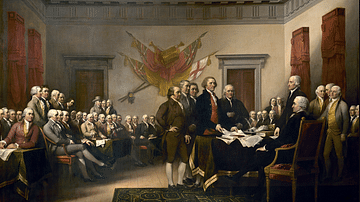
Definition
Second Continental Congress
The Second Continental Congress was the body of delegates that governed the Thirteen Colonies and, later, the United States during the American Revolutionary War. Between its first session in May 1775 and its disbandment in March 1781, the...
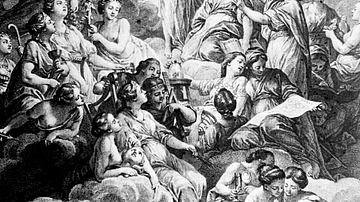
Definition
The Enlightenment
The Enlightenment (Age of Reason) was a revolution in thought in Europe and North America from the late 17th century to the late 18th century. The Enlightenment involved new approaches in philosophy, science, and politics. Above all, the...

Definition
Poppaea Sabina
Poppaea Sabina (30-65 CE) was the wife of Praetorian prefect Rufrius Crispinius and then Marcus Salvius Otho (r. 69 CE) before she became the second wife of Roman emperor Nero (r. 54-68 CE). Considered by ancient sources both attractive and...

Definition
William Howe
Sir William Howe (1729-1814) was a British military officer and politician, most notable for his role as commander-in-chief of the British army during the initial years of the American Revolutionary War (1775-1783). Despite several significant...
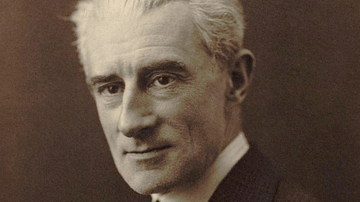
Definition
Maurice Ravel
Maurice Ravel (1875-1937) was a French composer of classical music best known for his innovative piano pieces and orchestral works like Bolero and Daphnis et Chloé. Sometimes called an 'impressionist' composer, much was made of a practically...

Definition
Michel de L'Hospital
Michel de L'Hospital (also known as L'Hôpital, c. 1505-1573) was a French statesman who served during the reigns of four kings – Francis I, Henry II, Francis II, and Charles IX – as Councillor of Parlement (1537), Chancellor of the Duchesse...
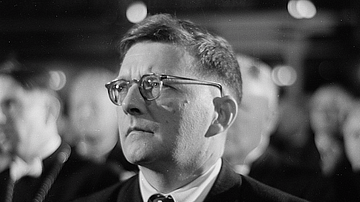
Definition
Dmitri Shostakovich
Dmitri Shostakovich (1906-1975) was a Russian composer of operas, ballets, concertos, string quartets, and 15 symphonies. Shostakovich was frequently denounced by the repressive Soviet state, but in some periods, he also gained official favour...
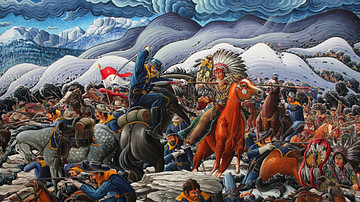
Definition
Red Cloud's War
Red Cloud's War (1866-1868) was a conflict between the Lakota Sioux-Cheyenne-Arapaho alliance and the US government over the westward expansion of the United States into the Powder River territory. It was the only war won by the Plains Indians...

Definition
Urdubegis
The urdubegis were a group of female warriors in the Mughal Empire, who protected the zenana, the harem of the emperor. Although the origins of female bodyguards go back to the beginning of Indian civilizations, the urdubegis were a Mughal...

Definition
Utilitarianism
Utilitarianism is a philosophy founded by Jeremy Bentham (1748-1832) and then extended by other thinkers, notably John Stuart Mill (1806-1873). Utilitarianism involves the greatest happiness principle, which holds that a law or action is...